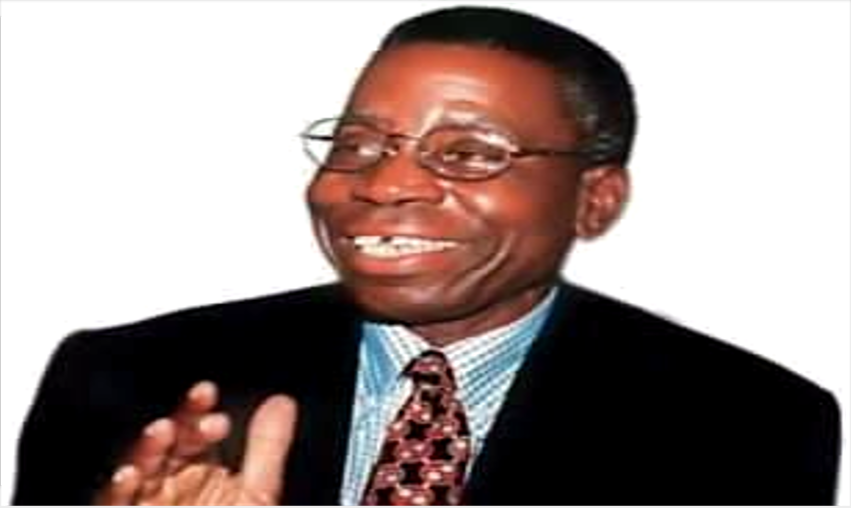On December 23, 2001, Chief James Ajibola Idowu Ige, popularly known as Bola Ige, was tragically murdered in his home in Ibadan, Nigeria. The murder of this prominent politician, lawyer, and former Attorney-General of Nigeria, remains one of the most unresolved political killings in Nigeria’s history, casting a dark shadow on the nation’s legal and political landscape.
Ige, a revered leader in the Afenifere—a pan-Yoruba socio-political group—was a key figure in the Alliance for Democracy (AD) and a staunch advocate for democratic ideals. At the time of his death, he was serving as Minister of Justice under the presidency of Olusegun Obasanjo. His assassination has since raised deep suspicions regarding the involvement of political forces at the highest levels of government. Despite numerous investigations and arrests, no one has been definitively held accountable for the crime.
The Night of the Tragedy
Ige’s death was nothing short of gruesome. On the evening of December 23, 2001, he was attacked in his residence in Bodija, Ibadan. At the time, his security detail was reportedly away for dinner, leaving the political icon vulnerable to the fatal assault. Ige was severely wounded and later died at Oluyoro Hospital, shocking the nation.
The response from political leaders, particularly President Obasanjo, was swift yet controversial. A conversation between Governor Lam Adesina of Oyo State and President Obasanjo in the aftermath of the attack raised questions about the president’s handling of the situation. When informed of Ige’s condition, Obasanjo’s response, questioning whether Ige had been confirmed dead, struck many as cold and dismissive. This, coupled with the ongoing political tension between the ruling People’s Democratic Party (PDP) and the opposition Alliance for Democracy (AD), led to widespread speculation that Ige’s death was politically motivated.
Political Tensions and Theories of Conspiracy
Ige’s murder occurred amidst increasing political strife within the South West of Nigeria. The AD—a key opposition party—was increasingly fractured, and Ige was seen as a unifying force, a successor to the late Obafemi Awolowo, a revered Yoruba leader. His political influence was seen as a threat by some, particularly as his national profile continued to rise.
Theories about the political motivations behind Ige’s murder have persisted for years. It is widely believed that the circumstances surrounding his assassination were far from random. Some speculate that Ige, a vocal critic of the PDP government, was eliminated to weaken opposition leadership in the South West, a region under the control of the AD at the time.
Further fueling these suspicions was Ige’s association with the late General Sani Abacha’s regime, where he had been a fierce critic of military dictatorship. He had earned the respect of many for his unwavering stance on democratic governance, making him a natural target in a politically volatile climate.
Unresolved and Open Questions
Despite multiple investigations and arrests, the true perpetrators of Ige’s murder have never been brought to justice. Over the years, several individuals were arrested, but each time, cases were dismissed or suspects acquitted. The political nature of the murder and the lack of closure have left the public demanding answers.
The Federal Government under President Bola Ahmed Tinubu is urged to reopen the investigation into Ige’s murder. As one of the country’s most respected political figures, his legacy of integrity and service demands that justice be served. His political contributions and commitment to democratic ideals were integral to the foundation of modern Nigerian politics.
A Legacy of Integrity and Service
Ige was not just a politician; he was a legal icon, a patriot who fought relentlessly for good governance and justice. As a former governor of Oyo State and a front-runner in Nigeria’s political scene, Ige was seen as the heir to Awolowo’s progressive vision. His intellectual prowess and oratorical skills earned him widespread admiration across Nigeria, even among his political adversaries.
Before his untimely death, Ige was being considered for a high-ranking appointment at the United Nations World Court in The Hague, an indication of his global stature and influence. His legacy remains tied to his unflinching commitment to the ideals of democracy, justice, and progress.
Call for Posthumous Honor
As the 23rd anniversary of Ige’s death passes, many still believe that he deserves posthumous recognition. Professor Wole Soyinka, Nigeria’s Nobel Laureate in Literature, has described Ige as a politician of high moral integrity who was not driven by personal vendettas but by a desire to serve the people.
It is time for President Bola Tinubu and the government to revisit the Bola Ige murder case, officially acknowledge his invaluable contributions to Nigeria’s democracy, and bestow upon him the Grand Commander of the Federal Republic (G.C.F.R.) — the highest honor in Nigeria, a fitting tribute to a life of sacrifice, service, and selflessness.
It is highly unusual, uncanny and shameful to a Nation that it’s Minister of Justice is yet to get justice for his murder more than 23 years later, I hope the government of the day would ensure this is resolved judiciously and fairly so that the real culprits would eventually answer for the dastardly act.
The struggle for justice continues, but as the Yoruba proverb goes: “Iyan Ogun odun jo enia lenu” — no matter how long it takes, the truth will ultimately prevail. It is time for the Nigerian government to ensure that justice for Bola Ige is not delayed any longer.



